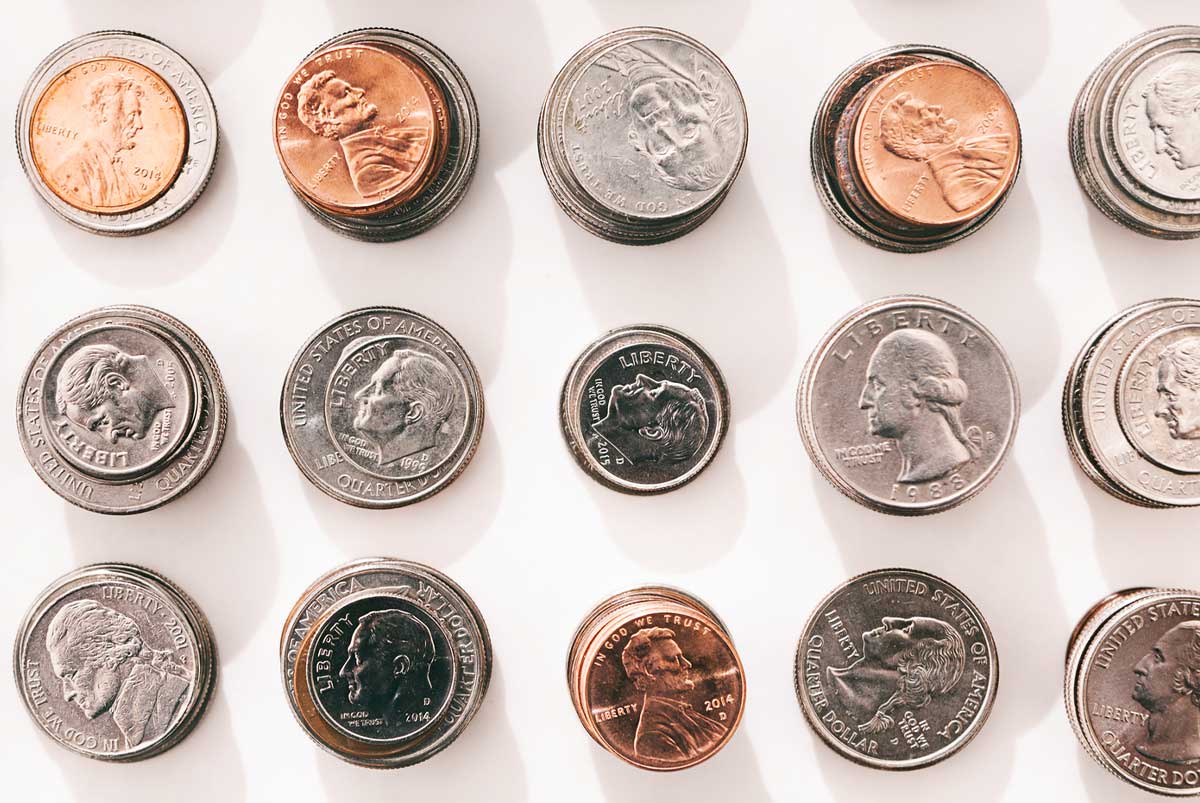Ready To Buy a Home?
Get Approved to Buy a Home
Rocket Mortgage® lets you get to house hunting sooner.
Whether it’s a financial windfall, accumulated savings, an annual bonus or a pay increase, you may be wondering whether it’s better to invest your extra cash or pay off your mortgage early.
Regardless of how you’ve come into your money, your goal is to set yourself up for future financial success. While there is no perfect answer to the question of whether to invest or pay off your mortgage, we’ll provide the pros and cons, empowering you to choose the one that best suits your financial journey.
How To Decide Between Paying Off Your Mortgage or Investing
Explore Your Mortgage Options
What are you looking to do?
If you’ve come into some money through an inheritance, a pay raise, bonus, legal settlement or by any other means, you’ll want to use those funds wisely. Choosing how to spend or invest your windfall should help you meet long-term financial goals and secure your future.
Why is it better to not pay off your mortgage?
It’s better to hold off on paying off a mortgage early because the savings rarely exceed the upside of investing.
Historically, investing in the stock market will make you more money than the amount you’d save paying off your mortgage early. Over the past decade, interest rates on a 30-year fixed-rate mortgage averaged less than 4%.[1] Meanwhile, the S&P 500 has generated annual returns averaging 12.79% over the last 10 years.[2]
If you paid off your mortgage instead of investing, you would have missed out on annual gains of over 8%, which could have been used to grow your retirement account, invest in your child’s education or reinvest your money in a brokerage account for future discretionary spending.
Opting to pay off your mortgage early is, essentially, a low-risk, low-reward choice. With inflation rates around 8.5%,[3] the savings from no longer paying loan interest are little more than damage control. If you want to outpace inflation and retain – or increase – your purchasing power, investing is more likely to get you there than an early mortgage payoff.
Before paying off your mortgage early, think about whether that money can better serve you in the market. Understand that investment gains are not guaranteed, but paying off your mortgage does guarantee savings on the interest you’d otherwise pay over the life of the loan.
Though the decision is personal, unless you already have 3 – 6 months of emergency savings, a well-funded retirement account, a desire to reduce your monthly expenses and an aversion to market volatility, investing makes more financial sense than paying off your mortgage.
Deciding To Pay Off Your Mortgage
There are several reasons you might decide to pay off your mortgage early. For most people, the idea of owning your home outright is more appealing than six-figure debt looming over their heads. In addition to peace of mind, there are more tangible reasons for wanting to pay off your mortgage.
In most cases, the long-term benefits of investing outweigh the benefits of paying off a house. But paying off your mortgage early may be worth it if you plan on staying in your home and want to reduce your monthly expenses.
Another variable to consider before paying off your mortgage is where you are in the amortization process (read: debt payoff).
When you take out a mortgage, you pay the most interest in the early years of the loan. As you continue to pay down the balance, the interest portion of your monthly payment decreases, and the portion that goes toward principal or your home’s equity, increases. If you’ve already paid most of the interest charges on your loan, it may not be worth paying off your mortgage early.
Alternatives to a full mortgage payoff
Cutting years off your mortgage doesn’t always require a large, lump-sum payment. There are several strategies for paying off a mortgage early. But if you are interested in a more aggressive approach, you can explore options to pay off a mortgage in 5 years.
Alternatively, you can shave off a few years from your loan by making an additional monthly payment each year.
Instead of paying your mortgage once per month, you could also divide the monthly amount by two and make a payment in that amount every other week. By using the biweekly payment method, you’ll make one extra payment per year. On a 30-year, $250,000 loan with a 4% fixed interest rate, that means you’ll own your house in just under 26 years.
What are the benefits of paying off your mortgage early?
There are several reasons why paying off your mortgage early could be a good idea.
- Gain full equity and don’t pay interest: The main benefit of paying off your mortgage early is that you build equity in your home while no longer paying interest.
- Predictable savings on interest: Since most mortgages tend to be fixed rate with a predictable monthly payment, you can see exactly what you’re saving in interest when you pay your mortgage off.
- Lowering your debt: Assuming your income doesn’t go down, paying off any debt will lower your debt-to-income (DTI) ratio. This can be good for your credit score and can help you qualify for better terms on future loans.
- Peace of mind: Paying off a significant debt can give you a feeling of accomplishment and offer peace of mind because you no longer owe your mortgage lender.
What are the drawbacks to paying off your mortgage early?
Paying off your mortgage early has several drawbacks.
- Missing investment opportunities: One of the drawbacks of paying off your mortgage early is the opportunity cost. If you choose to allocate free cash to pay off your house loan, you could be missing out on potential growth in the stock market.
- Savings depletion: Another drawback of an early mortgage payoff is that it might come at the expense of your savings. For instance, if you use emergency funds to pay off your mortgage, you’ll no longer have a safety net.
- Fees: There’s a chance your lender will charge a prepayment penalty, negating a chunk of the anticipated savings you’d get from paying off your mortgage early.
- You may not save much: If your mortgage has a relatively low outstanding balance, paying it off might not provide as much in savings as you’d like. Though your payments (not including property taxes and mortgage insurance) on a fixed-rate mortgage are the same over the life of the loan, the amount of interest you pay decreases over time as the loan balance is paid down.
For example, on a 30-year $250,000 loan with a 5% fixed interest rate, you’ll be paying over $1,000 in interest for the first two and a half years. When half the loan is paid off, the amount of interest per payment is reduced by roughly half, meaning more of your monthly payment is allocated directly to paying off your mortgage and building home equity.
- Loss of tax advantages: Disadvantages of paying off a mortgage early can also include losing certain tax advantages. Interest on a mortgage for a primary residence is tax deductible and can save homeowners thousands of dollars per year.[4] An early mortgage payoff can negate those savings, further diluting the savings from putting your free cash toward eliminating your mortgage debt.
- Potential liquidity issues: Finally, though it may never be a problem, allocating free cash to pay off your mortgage can make it more difficult to access those funds. While you can tap into your home’s equity with a home equity loan or home equity line of credit (HELOC), investing in the stock market will incur lower fees and give you more liquidity.
Deciding To Invest Your Money
If you decide to invest your money, instead of paying off your mortgage, it’s important to consider the different investment options. Before you choose a specific investment, consider the type of account you want to invest in and how it can help you reach your long-term financial goals.
Many experts recommend investing in retirement first, citing the benefits of compounding interest. Investing in a retirement account can offer tax benefits. With an employer-sponsored plan, there’s also the potential for matching contributions.[5]
If you have children and want to invest in an education plan for them, you can grow that investment and enjoy the tax breaks of a qualified education plan, like a 529 plan or an education savings account.
Regardless of the account type, investing comes with inherent risks, but you can choose the degree of risk you’re comfortable taking with your money. Stocks usually offer the most upside potential on your investment but come with a higher degree of risk. Treasury bills, CDs and fixed-income assets offer lower returns and reduced risk.
Deciding to invest your money should be done after careful consideration of the implications of your investment. These considerations include the risks of market volatility, loss of principal, taxes and your investment time horizon. It’s a good idea to consult a professional who can help you invest with your goals in mind.
What are the benefits of investing your extra cash?
There are several benefits to investing your extra cash, including:
- Using that money to make money: Investing your extra cash increases your potential return more than if you paid off your mortgage.
- Tax advantages: In addition, you may benefit from tax incentives linked to certain account types, like IRAs or 529 plans. You can also use investing to ensure you’re getting the most from your employer-matched 401(k).
- More liquidity than home equity: Investing gives you more flexibility than paying off your mortgage. Depending on the type of investment, you can sell if you need emergency cash.
What are the drawbacks to investing your extra money?
Investing is an attractive proposition, but it isn’t perfect. The drawbacks of investing your extra money include:
- Possible losses: The primary drawback of investing your extra money in the stock market is that you don’t know how the market will perform. Historically, there’s a very high likelihood your money will grow over time. However, the possibility of losing money in the stock market is something you should consider.
- Volatility: When investments do increase in value, they seldom do so linearly. If you invest money today, there’s no telling what it might do a year from now. When investing in retirement or education plans, your money is subject to market volatility and rules governing how and when you can make withdrawals.
- More time and effort (if you do your own investing): If you manage your investment portfolio, keeping up with research on market conditions and trends can take a significant amount of time.
- Penalties for unqualified withdrawals (in retirement or education savings accounts): Some investment accounts can have significant penalties for early withdrawal.
- Possible increase in the amount of taxes you owe: Investment earnings in most non-retirement or education accounts are generally taxable.
Deciding To Do Both and More
If you want the best of both worlds, you can invest while paying off your mortgage. Investing can help grow wealth, but it comes with risks. Paying off your mortgage provides savings on a predetermined amount of interest, but is limited to the amount of interest you owe.
Your financial health is all about balancing saving, spending and investing. Choosing to invest or pay off your mortgage comes down to your priorities, like becoming financially secure, building wealth for retirement and saving for your children’s college tuition.
When you have multiple priorities, combining the benefits of investing with paying down your mortgage can put you in a position to succeed financially.
Let’s say you’re in your early to mid 40s, you’ve got two preteens and 7 years remaining on a 15-year mortgage. If you use all your free cash to pay off your mortgage, you may neglect to save for retirement or your children’s education. If you invest all your money, you may be exposing yourself to a risk level beyond your comfort zone.
By dividing the allocation of your free cash into both investments and paying off your mortgage, you can set yourself up for financial security. Your investments can help you grow some of your money, while paying off your mortgage early can aid in reducing debt and free up more money for saving, investing or spending.
Define Your Goals and Pick the Right Path for You
There’s no right or wrong answer when you’re choosing between investing and paying off your mortgage. For some people, it makes more sense to invest. For others, the better option is having peace of mind and the risk-free savings you get by paying off a mortgage early. If you can’t decide between the two, you may find doing both affords the perfect balance of growth potential and guaranteed savings.
A financial professional can help you balance your needs and goals and help you decide whether investing, paying off your mortgage or a combination of the two is best for you.
Need Mortgage Help?
New home, second home, refinancing, we’ve seen it all. Whatever your goals, expert help is just a click away.
The Short Version
- Historically, investing in the stock market will make you more money than the amount of money you’d save paying off your mortgage early
- Investing gives you more flexibility than paying off your mortgage
- If you want the best of both worlds, you can invest while paying off your mortgage faster
Freddie Mac.“ 30-Year Fixed-Rate Mortgages Since 1971.” Retrieved May 2022 from https://www.freddiemac.com/pmms/pmms30
S & P Dow Jones Indices. “S & P 500.” Retrieved May 2022 from https://www.spglobal.com/spdji/en/indices/equity/sp-500/#overview
Bureau of Labor Statistics. “ Consumer Price Index – March 2022.” Retrieved May 2022 from https://www.bls.gov/news.release/pdf/cpi.pdf
IRS. “ Publication 936 (2021), Home Mortgage Interest Deduction.” Retrieved May 2022 from https://www.irs.gov/publications/p936
Vanguard.“ When Should You Start Saving for Retirement? ” Retrieved May 2022 from https://investor.vanguard.com/investor-resources-education/retirement/savings-when-to-start




